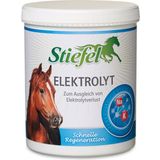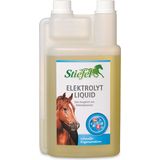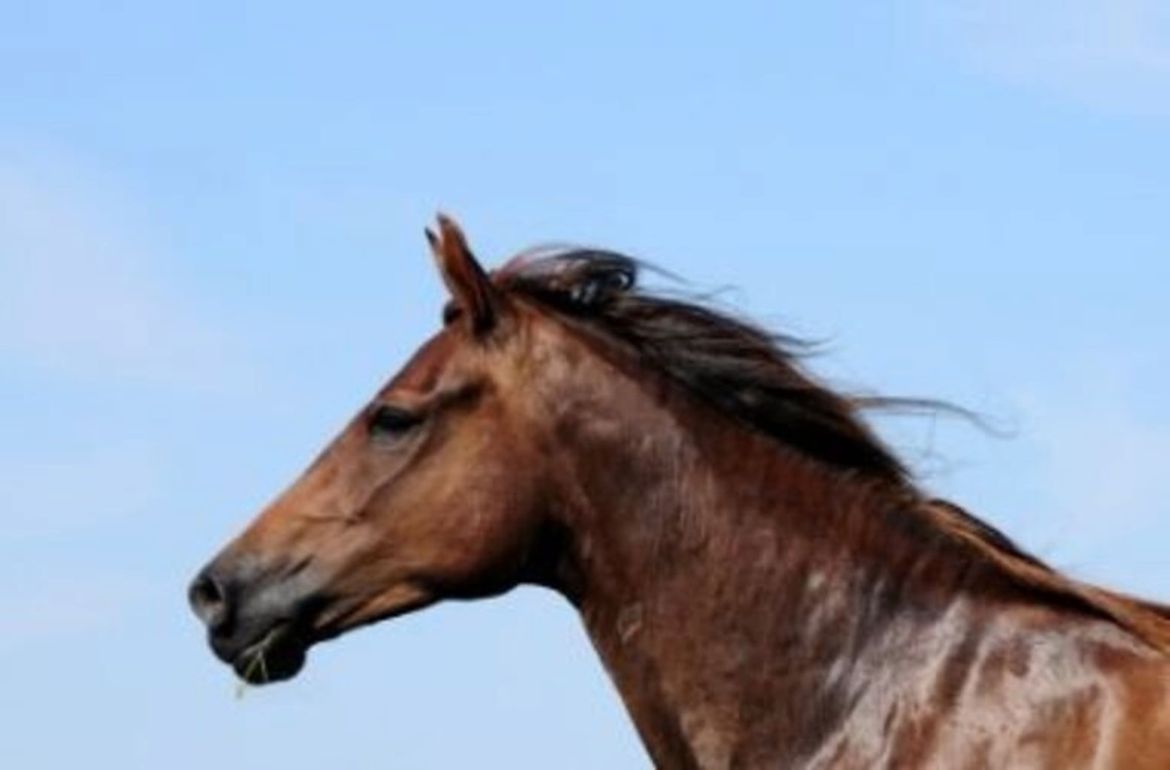Electrolytes
Regulation of the water balance
What are electrolytes?
Electrolytes are minerals, trace elements and salts. The name comes from their ability to conduct electricity. In the horse's organism, as in humans, they have the important task of distributing fluids and regulating the water balance. Some important electrolytes are potassium, magnesium, sodium, calcium, and phosphorus. The body cannot produce electrolytes itself, so they have to be supplied through food.
Water balance in the horse's organism
Consuming enough water is very important for a healthy organism. 30 - 50 litres per day are normal, depending on the weather and the level of stress. These enormous amounts of water are required for many functions in the organism, but above all, water serves as a means of transporting nutrients. Many metabolic waste products can only be removed and excreted if they are dissolved in water in a certain concentration. In addition, water has the important function of regulating heat.
Thermoregulation
The heat regulation of the horse works, like us humans, through the skin. If the body is overheated due to training and hot temperatures, the body releases water + electrolytes (sweat) through the skin to keep the horse's body temperature constant. Through the process of sweating, water is first distributed over the coat. This film of water evaporates with the help of the excess body heat, which in turn is used up and pleasantly cools the body.
How does my horse lose fluids?
The horses sweat continuously due to the high summer temperatures. Which means they use a lot more water than usual. If the horse is then exposed to extreme stress, a horse weighing 600kg, for example, produces up to 35 - 45 litres of sweat in five to seven hours on hot days. That is about 7% of the body weight. Along with water, significant amounts of sodium chloride, potassium, calcium, magnesium, phosphorus, zinc, iron and copper are lost with horse sweat - under extreme conditions up to several hundred grams in just one day.
Horses also have an increased need for fluids, for example if they have diarrhea, because a lot of water is then lost through their faeces.
Feed properly - Compensate for fluid loss
In addition to the lost water, these electrolytes must therefore also be replaced as quickly as possible. In the case of frequent and profuse sweating, this is not possible with a salt lick alone. There are also other important electrolytes missing. Stiefel offers electrolytes in powder and liquid form. It is a water-soluble diet supplementary feed to compensate for electrolyte losses caused by excessive sweating in horses and to stabilise the water and electrolyte balance in foals.
Tips
A horse-friendly diet with a lot of crude fibre from pasture grass and especially hay binds water in the intestine and represents a silent reservoir for stress on hot days!
In addition, when the temperature is hot, you should avoid exercising in the early morning or late evening hours to avoid sweating too much.
Related products
-
 5.0 (2)
5.0 (2)Stiefel Electrolyte, 1 kg
- To compensate for electrolyte losses
- For water and electrolyte balance
- With sodium, potassium and magnesium
£18.86 (£18.86 / kg)Delivery by April 23
-
 5.0 (5)
5.0 (5)Stiefel Liquid Electrolyte , 1 l
- Contains sodium, potassium, calcium and magnesium
- For compensation of electrolyte losses
- Dietetic feed for horses
£13.07 (£13.07 / l)Delivery by April 23
-
Great Britain: Free standard delivery from £79.90
-
Free
returns Secure payments
with SSL encryption technology

